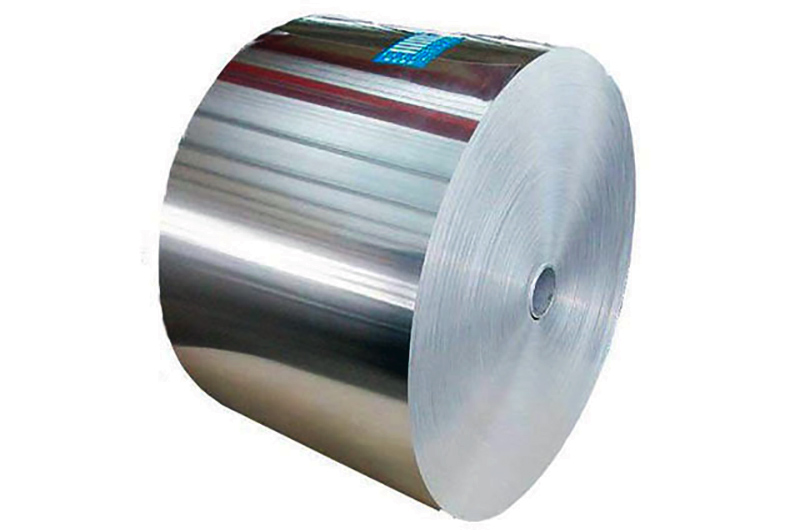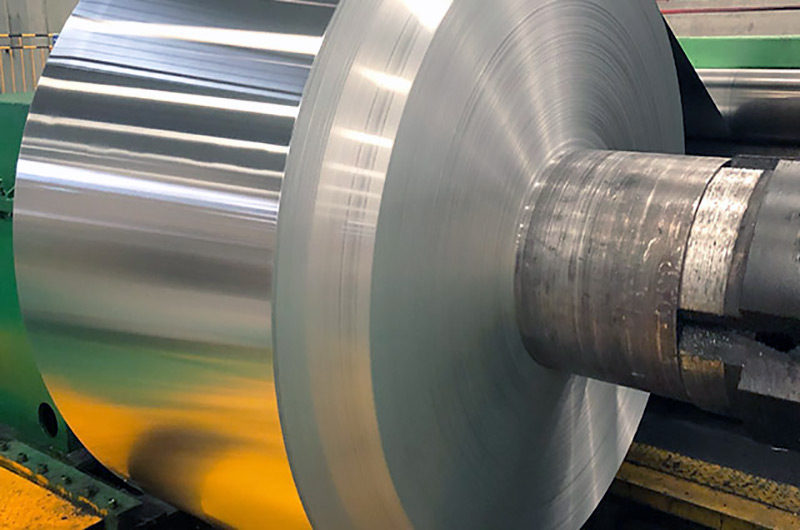Aluminum Coil for Beverage Cans Introduction
The humble beverage can, an everyday item in our lives, holds more than just your favorite drink. It embodies engineering and material science, with aluminum being the primary choice for manufacturing these ubiquitous containers.
In this extensive content, we will explore the world of aluminum coils specifically designed for beverage cans. We will discuss their properties, advantages, applications, the alloys used together, specific examples, challenges, and a comparison with similar products.

Properties of Aluminum Coils for Beverage Cans
Alloy Selection Aluminum Coils for Beverage Cans
Aluminum coils for beverage cans are typically made from specific aluminum alloys that are chosen for their ideal properties. The two most commonly used alloys are:
- 3004 Aluminum Coils for Beverage Cans: This alloy is primarily used for the body of the can. It offers excellent formability, corrosion resistance, and strength. The 3004 alloy is often coated with a layer of paint or a polymer to provide protection and maintain the can's appearance.
- 5182 Aluminum Coils for Beverage Cans: This alloy is commonly used for the can's top and bottom (the can end or "lid"). 5182 aluminum provides the necessary strength and formability to create the intricate shapes required for can ends.
Coating Aluminum Coils for Beverage Cans
Beverage cans, whether they hold carbonated drinks or other beverages, require an internal and external coating to protect the aluminum from the beverage and to maintain the product's quality.
The internal coating prevents chemical reactions between the beverage and the aluminum, while the external coating protects the can from external factors like humidity, UV rays, and scratches.
Heat Treatment
The aluminum coils used for beverage cans undergo heat treatment processes to enhance their mechanical properties. Heat treatment involves heating the aluminum to a specific temperature and then cooling it at a controlled rate. This process can significantly impact the alloy's strength, ductility, and formability.
Advantages of Aluminum Coils for Beverage Cans
1. Lightweight
One of the most significant advantages of aluminum for beverage cans is its lightweight nature. Aluminum is exceptionally light compared to other materials like glass or steel. This lightness reduces transportation costs, energy consumption during production, and environmental impact.
2. Corrosion Resistance
Aluminum is naturally corrosion-resistant due to the formation of a protective oxide layer on its surface. This characteristic ensures that the contents of the can remain uncontaminated and unaffected by the container material.
3. Formability
Aluminum is highly malleable and offers exceptional formability, allowing manufacturers to create the complex shapes required for can bodies and ends. This formability is crucial for the efficient production of cans with varying sizes and designs.
4. Recyclability
Aluminum is 100% recyclable without any loss of quality, which makes aluminum cans one of the most environmentally friendly packaging options available. The recycling process saves energy and resources while reducing waste.
5. Speed of Production
Aluminum cans can be manufactured at high speeds using modern can-making machinery. This efficiency is essential for meeting the high demand for beverage cans worldwide.
6. Preservation of Contents
Aluminum cans protect the beverage from light, oxygen, and contaminants, ensuring that the product inside remains fresh and uncontaminated. This is particularly important for preserving the taste and quality of beverages.

Disadvantages of Aluminum Coils for Beverage Cans
1. Cost
While aluminum is cost-effective in some aspects, the initial production cost can be relatively high due to the energy-intensive processes involved. However, this cost is often offset by the benefits of recyclability and reduced transportation costs.
2. Limited Barrier Properties
Aluminum itself does not provide a perfect barrier against oxygen or light, which is why coatings are applied to the can's interior and exterior. This additional step is necessary to ensure the contents remain unaffected by external factors.
3. Denting
Aluminum cans are prone to denting, which can affect their appearance and functionality. While denting is generally a minor issue, it can be a drawback in terms of aesthetics.
Applications of Aluminum Coils for Beverage Cans
1. Aluminum Coils for Carbonated Beverages
Carbonated soft drinks are one of the most common applications for aluminum beverage cans. The pressurized contents require a strong and lightweight container, making aluminum the perfect choice.
2. Aluminum Coils for Non-Alcoholic Beverages
Aluminum cans are used for a wide range of non-alcoholic beverages, including fruit juices, iced tea, energy drinks, and more. The corrosion resistance of aluminum ensures that the contents remain uncontaminated.
3. Aluminum Coils for Beer and Alcoholic Beverages
Aluminum cans have made inroads into the beer and alcoholic beverage industry, offering a lightweight and easily recyclable alternative to glass bottles. Some breweries and distilleries now offer their products in aluminum cans.
4. Aluminum Coils for Water and Soft Drinks
Aluminum cans are also used for still water and non-carbonated soft drinks. The environmental advantages of aluminum, such as recyclability and reduced transportation costs, make it an attractive choice for these applications.
5. Aluminum Coils for Specialty and Craft Beverages
The craft beverage industry, including craft beer and artisanal soft drinks, has embraced aluminum cans for their versatility and brand-friendly design options.
Specific Application Examples
1. Soda Cans
Carbonated soft drinks, or soda, are perhaps the most iconic use of aluminum beverage cans. These cans are lightweight, robust, and offer excellent protection for the contents.
2. Energy Drink Cans
The energy drink industry relies heavily on aluminum cans due to the lightweight, recyclable, and hygienic properties of aluminum. These cans often feature vibrant and eye-catching designs to attract consumers.
3. Craft Beer Cans
Many craft breweries have adopted aluminum cans for their craft beer offerings. The smaller size of cans is convenient for single servings, and the reduced environmental impact aligns with the values of many craft beer enthusiasts.
4. Water Bottles
Aluminum cans have made their way into the bottled water industry as an eco-friendly alternative to single-use plastic bottles. These cans are often preferred for their recyclability and ease of transportation.
Challenges in the Use of Aluminum Coils for Beverage Cans
1. Sustainability and Recycling
While aluminum is highly recyclable, collection and recycling rates vary around the world. One challenge is to ensure that a high percentage of aluminum cans are recycled, reducing the need for primary aluminum production.
2. Denting and Damage
Aluminum cans are susceptible to dents and damage, which can affect their appearance and structural integrity. This is a common issue in the handling and transportation of cans.
3. Beverage Compatibility
Aluminum can coatings must be compatible with the specific beverage to prevent any chemical interactions or off-flavors. Ensuring the correct coating is essential to maintain beverage quality.
4. Cost Considerations
The initial cost of aluminum and the various coatings applied to cans can impact the overall cost of production. Manufacturers must strike a balance between cost and quality.
Comparison with Similar Products
1. Glass Bottles
Glass bottles have long been a primary competitor to aluminum cans. While glass is recyclable and offers excellent barrier properties, it is heavier, more fragile, and less efficient in terms of production and transportation.
2. Plastic Bottles
Plastic bottles, often made from PET (polyethylene terephthalate), are lightweight and shatterproof. However, they are less environmentally friendly due to their relatively low recycling rates and potential environmental concerns.
3. Carton Packaging
Carton packaging, often used for juices and milk, is lightweight and provides good barrier properties. However, it is not as widely used for carbonated beverages due to its limited ability to contain pressure.
4. Pouches
Pouches, made of flexible materials like plastic and aluminum, are lightweight and space-efficient. They are commonly used for single-serving beverages but are less suitable for carbonated drinks.
Conclusion
Aluminum coils for beverage cans are a remarkable innovation that plays a crucial role in the packaging industry. Their lightweight, corrosion-resistant, and recyclable properties make them the preferred choice for a wide range of beverages, from carbonated soft drinks to craft beer and bottled water.
Despite some challenges, such as denting and cost considerations, aluminum cans have proven to be an environmentally friendly and practical solution for modern beverage packaging needs.
As the demand for sustainable packaging continues to grow, aluminum beverage cans are likely to maintain their prominent position in the market.

